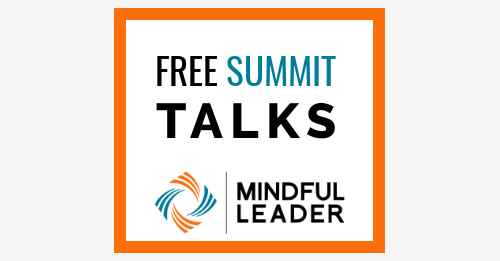Blog
Discovery
August Neuroscience Roundup for Mindful Leaders
For this month’s Round-Up, we explore mindfulness in schools, how mindfulness regulates pain, finding meaning in life by appreciating the little things, the cognitive benefit of self-reflection, and why the serotonin theory of depression might not be as compelling as we think. We have summarized the main ideas and key takeaways below with links to the full articles.
School Mindfulness Programs: Why Some Work and Others Don’t
In an updated meta-analysis, researchers of the My Resilience in …
Navigate Uncertain Times with Emotional Intelligence, Mindfulness, and Compassion
By Michelle Maldonado, guest contributor
I love historic novels; especially ones that explore the plights, triumphs, and transformation of humanity. Today, as we are both participants and witnesses to what is happening in our local and global communities, I can’t help but be reminded of the Charles Dickens quote from A Tale of Two Cities: “It was the best of times, it was the worst of times, it was the age of wisdom, it was the age of foolishness... it was the season of light, it was the season…
Overcoming Stress, Anxiety, and Fear at Work

Elisha discusses ways people can overcome anxiety and overwhelm in their professional and personal lives. He suggests using a four-part inquiry process to determine and clarify intentions and goals. For people who want to get into a regular practice of mindful meditation, Elisha shares a 3 part process of Forgive, Investigate, and Invite, to build a regular meditation practice. He explains how individuals need to pay…
How Mindfulness Creates a Thriving Positive Organization: The 3 Key Psychological Factors to Success

With increased global volatility, companies rely on a strong positive organizational culture and a resilient workforce to thrive. Learn how to use the science of Positive Psychology to build your team's creative, social, mental and emotional capital. And discover how mindfulness practices can drive the psychological factors which lead to success.
This Free Summit Talk has expired.
July Neuroscience Round-Up for Mindful Leaders
by the Mindful Leader Team
For this month’s Round-Up, we explore the link between executive function and grit, how meditation can reduce guilt and diminish prosocial reparation behavior, the benefits of travel for dementia and other mental health conditions, the relationship among MBIs, depression, and cancer survival, and the impact of hindrance stressors on emotional exhaustion in healthcare workers. We have summarized the main ideas and key takeaways below with links to the full articles.
T…
The Many Ways to Fight
by Joy Reichart, New Ventures West, guest contributor
“I think being a poet is fighting. I think gardening is fighting. Feeding people is fighting. Being a street medic is fighting. Creating beauty and art is fighting. Teaching people to feel despair and not collapse is fighting. A sustainable revolution needs raised fists in the streets, and it needs so much more than that.” —Jessica Phillips, NVW Enrollment Director
A few days ago my friend Kirsten drove me to a medical appointment. While in…
7 Keys to Resolve Conflict Consciously

As individual leaders and their teams become more mindful, communication and conflict are still issues in relationships and organizations. Discover a mindful approach to communication and conflict, including a very practical tool called The Clearing Model that hundreds of teams are using to practice conscious communication and conflict resolution.
This Free Summit Talk has expired.
Leading with Mindfulness, Selflessness, and Compassion

Jacqueline provides an overview of current leadership challenges and presents research findings for successful leadership practices in the 21st century. To address leadership challenges, Carter shares how mindfulness is an effective tool to manage attention for leaders. She discusses how research demonstrated most leaders feel ‘unmindful’ and their minds are cluttered, therefore resulting in tasks being incomplete. Carter provides three…
June Neuroscience Round-Up for Mindful Leaders
For this month’s Round-Up, we examine the latest findings regarding MBSR and structural brain changes, what our brain waves tell us about how we engage with art, the promise of mindfulness-oriented recovery enhancement, remembering selfless experiences, and look at how functional brain connectivities relate to pain and trauma. We have summarized the main ideas and key takeaways below with links to the full articles.
1. Mindfulness Doesn’t Change Our Brains in Ways Once Thought
Findings from th…
How to Face the Challenges of Going Back to the Office
By John J. Murphy
We all know the eternal optimist says “the glass is half-full,” while the pessimist says “the glass is half-empty.” But as the author Simon Sinek says, “People who wonder whether the glass is half empty or half full miss the point. The glass is refillable.” That’s the real optimist.
Research shows that positive energizers, those who are not only optimistic, but who uplift, motivate, and renew others usually wind up uplifting themselves and their organizations. Their contagio…





